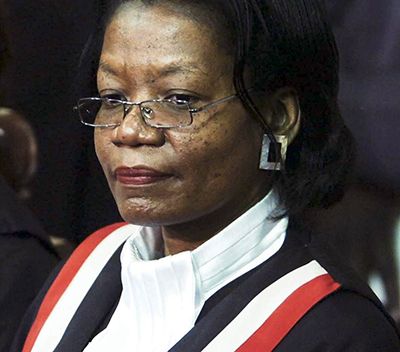(Trinidad Guardian) Twenty-one Venezuelan migrant adults and children, who returned to this country after being repatriated two Sundays ago, have obtained court orders preventing their deportation pending litigation against the State.
Guardian Media understands that last night, Justice Joan Charles granted orders for four of the migrant children.
Lawyers representing the group had to file individual lawsuits for the 16 children and nine adults, who were still quarantined at the Chaguaramas Heliport up to yesterday.
Sources said that they were eventually able to file lawsuits for 22 of the group, as they could not find relatives living in Trinidad and Tobago, either illegally or illegally, on whose behalf the lawsuits could have been filed for the remainder of the group.
While the first case brought on behalf of a four-year-old boy, his sister and their mother was dealt with by Justice Avason Quinlan-Williams, who served as an emergency judge last week, the others that were filed over the weekend were randomly assigned to other judges.
In the first case, State attorneys gave an undertaking not to deport the family. On Monday, Quinlan-Williams granted a similar application for an injunction for a woman and her three children. Charles also dealt with the cases of three minors who arrived with the group without their parents and granted similar interim injunctions.
On Tuesday, however, High Court Judge Frank Seepersad delivered a 34-page written decision, in which he denied a similar order for an 11-year-old girl. Seepersad stated that he did not believe that the minor’s case had a realistic prospect of success.
“The court, therefore, holds the view that it would not be just or convenient to grant the injunctive relief sought so as to restrain the State from enforcing what on the face of it appears to be the existing domestic law and the court is not satisfied that having regard to all of the outlined circumstances that the reliefs sought in the substantive claim are so clothed with the likelihood of success that the court should adopt the exceptional course of restraining the State from enforcing what appears to be applicable domestic law,” Seepersad said in his ruling.
Seepersad rejected preliminary submissions from the child’s legal team over the effect of the 2014 Draft Policy on Refugees and Asylum Seekers, which was approved by Cabinet but not Parliament. He said that the Government was free to change its policy due to prevailing circumstances including the COVID-19 pandemic.
“Recent statements made by the Prime Minister and the Minister of National Security clearly articulated that the government has departed from the draft policy, in this pandemic climate, in so far as it relates to the process to be applied in relation to those who enter into the jurisdiction illegally. This does not strike the Court at this stage as an irregular or unreasonable policy shift,” he said.
Seepersad also ruled that the child’s mother, who is not a registered migrant, was motivated by self-centered socio-economic considerations and did not properly consider her child’s welfare, as required in the same UN Conventions she is relying on in the case, when she arranged for her to enter this country illegally with strangers.










